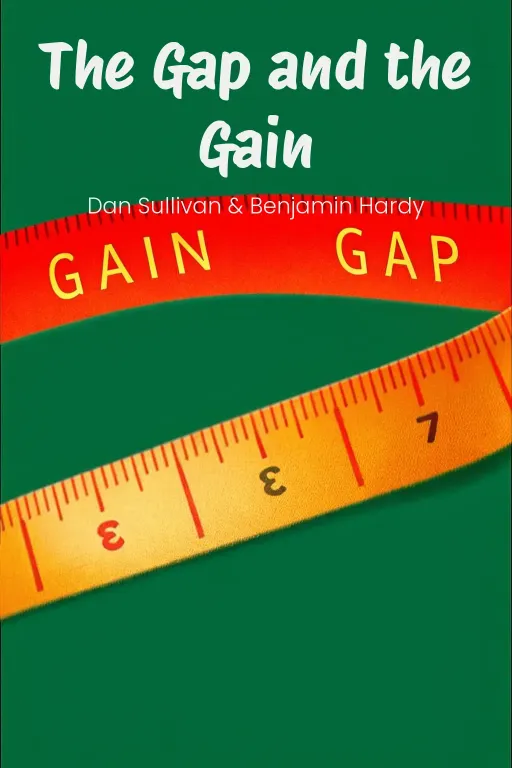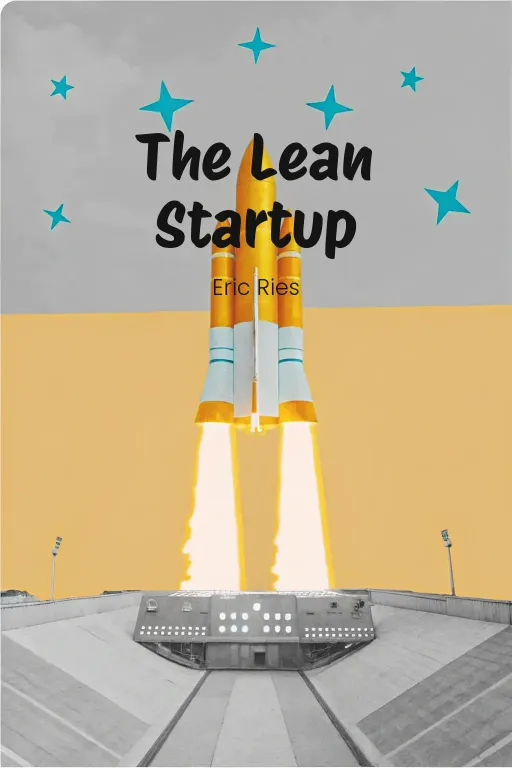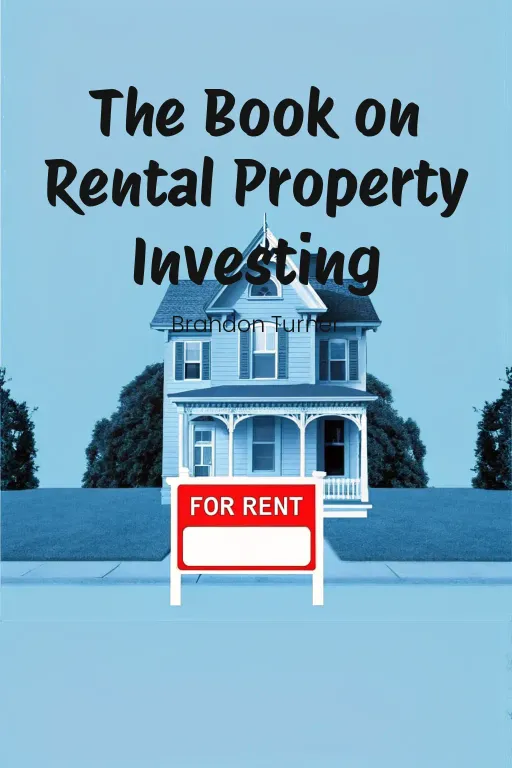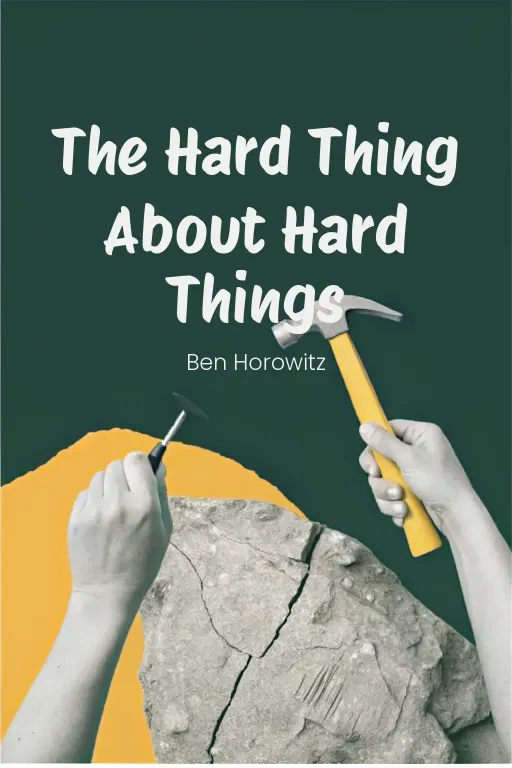
Stop Chasing "More": Find Joy Now!
Podcast by Let's Talk Money with Sophia and Daniel
The High Achievers' Guide to Happiness, Confidence, and Success
Introduction
Part 1
Daniel: Hey everyone, welcome back! Today we're diving into something that could really shift the way you see success and happiness in your life. Sophia: Oh, just a little perspective tweak, right? NBD. Only everything is on the line. Daniel: <Laughs> Well, I really think it's that powerful. Have you ever felt frustrated because you're just not where you thought you'd be “by now”? Sophia: Ugh, constantly. Or maybe compared yourself to someone else’s curated online life and felt totally inadequate? Like you're running a race backwards? Tell me I'm not alone. Daniel: Definitely not alone. Those moments, that frustration, that comparison... that's what Dan Sullivan and Benjamin Hardy call "The GAP." It's basically torturing yourself by measuring against some impossible ideal, and it leaves you feeling stressed and totally unsatisfied. Sophia: So, here come our heroes with the antidote: "The GAIN." And no, it's not about getting ripped at the gym, unfortunately. Daniel: Exactly. The GAIN mindset is about shifting your focus. Instead of obsessing about what you haven't achieved, you look back at how far you've already come. It's about gratitude, self-compassion, all that good stuff. This isn't just some airy-fairy concept; the book backs it up with real strategies, examples, and some solid psychological insights. Sophia: Okay, I’m intrigued. So, what’s the game plan for today? Daniel: We're breaking it all down. First, we are going to have a head-to-head standoff of the GAP versus the GAIN, think of them as two opposing lenses. Sophia: Got it. Daniel: Then, we’ll look at practical tools for shifting from the GAP to the GAIN. Actionable steps, no matter where you’re starting. Sophia: Alright. Daniel: And finally, we'll talk about the ripple effect of living in the GAIN—how it builds happiness and resilience in the face of life's unexpected challenges. Sophia: Sounds good, so how can we apply this to modern urban life? Daniel: It’s a really fascinating idea, and I think it’s going to click with a lot of listeners. Ready to jump in? Sophia: Absolutely. Time to close that GAP, then.
Understanding the GAP and GAIN Mindsets
Part 2
Daniel: Okay, let's dive straight into understanding this whole GAP mindset thing. Sophia, how would you explain it in your own words? Sophia: Well, the GAP? To me, it feels like chasing a mirage. You know, you're running towards that finish line, but it always seems to move further away. It's exhausting, and—spoiler alert—you're never going to actually win. Daniel: Precisely! That GAP mindset “really” thrives on focusing on what's lacking. It's all about what you don't have, what you haven't achieved yet, or not measuring up to some ideal standard. And it's not just a personal struggle, is it? Society often reinforces it. Sophia: Oh, absolutely. Just scroll through Instagram for like, five minutes. It's basically everyone else's highlight reel. Vacations, promotions, amazing relationships – you're constantly comparing your everyday life to someone else's best moments. Daniel: Right, and that constant comparison, that's a classic sign of the GAP mindset! It creates this “really” toxic spiral of dissatisfaction. Take Edward's story from the book, for instance. Sophia: Ah, yes, our poor, overachieving businessman. This guy's swimming in money, building an empire. Yet, he’s still crippled by anxiety because he thinks he needs even more to feel secure. Daniel: Exactly! Edward's a prime example of how the GAP mindset just hijacks your emotional well-being. Instead of appreciating his accomplishments, he's fixated on what he thinks he's missing – like that elusive ten million dollar benchmark he thinks will bring him peace. Sophia: Which, let's be honest, it probably wouldn't. Even if he hit that goal, he'd probably just move the goalposts: "Okay, now I'll relax when I have twenty million." Daniel: Exactly! The GAP just traps you in this perpetual "not enough" state, where success or happiness is always just out of reach. Satisfaction is dangled like a carrot, but you never actually get to enjoy it. Sophia: And it's insidious, right? I mean, it's not just about money or career goals. It can creep into your relationships, your fitness... like when you're staring in the mirror thinking, "Ugh, if I could just lose another five pounds..." Daniel: Precisely. The GAP kind of breeds discontentment across the board. Here’s the crucial part: living in the GAP doesn’t mean you’re objectively failing. Someone like Edward could be viewed as extremely successful, but internally, he's miserable. Sophia: So, it’s less about what you’ve actually achieved and more about how you see what you’ve achieved. Got it. Daniel: Yep, and that's where the GAIN mindset comes in and flips the whole script! Sophia: Alright, here we go – the superhero of mindsets, swooping in to save the day. Break it down for us, Daniel. What makes the GAIN so… life-changing? Daniel: The GAIN mindset is all about gratitude and reflection. Instead of being obsessed with the distance between where you are and where you want to be, you kind of measure backward. So you reflect on how far you've come from where you started. It’s a “real” shift, replacing anxiety with appreciation. Sophia: Okay, so in theory, this sounds fantastic. But let’s get “real”. Can you give me a tangible example of the GAIN mindset in “real” life? Daniel: One of the most powerful examples from the book is Dan Jansen, the Olympic speed skater. For years, his entire career was built around winning gold – anything less felt like a complete and utter failure. Sophia: Ah, classic GAP thinking: "If I don’t win the ultimate prize, then none of it even matters." Daniel: Right! And predictably, that pressure kind of crushed him, you know? He kept falling short, which only fueled more disappointment. But then, something clicked. He shifted into the GAIN mindset. Jansen started focusing on his progress, on his personal growth, and why he loved the sport in the first place. Sophia: Let me guess – he suddenly unlocked some next-level performance because he wasn’t weighed down by impossible expectations? Daniel: Bingo! In his final Olympic race, he actually skated with joy, with gratitude. And not only did he win his first gold medal, but he shattered a world record at the same time. The key here is that his fulfillment wasn't tied to the medal itself - it came from that mindset shift. Sophia: Alright, I’ll grant you this one. That’s a pretty convincing argument for the GAIN. But I’m still curious – what happens when life doesn’t neatly fall into place? What about when someone is stuck in a genuinely tough spot, no gold medal in sight? Daniel: Great question! That’s exactly why the GAIN mindset also emphasizes resilience and reframing setbacks as growth opportunities. It’s not about pretending there aren’t challenges, right? It’s about recognizing the progress that comes from the struggle. Sophia: So, would you say the GAIN is more like... finding meaning in the mess? Daniel: That’s a perfect way to put it. For instance, there's this psychological exercise in the book called "mental subtraction." Sophia: Sounds... intense. Daniel: Actually, it's incredibly empowering! You basically imagine your life without something or someone you take for granted. It could be your health, your family, basic abilities... And this helps reframe your current circumstances, replacing negativity with genuine gratitude for what you already have. Sophia: I can see how that would shift your perspective, right? Kind of like realizing how rich your life already is if you stop focusing on what's "missing." Daniel: Exactly! And another key tactic is one of my favorites: measuring backward versus forward. Instead of asking, "Why aren't I there yet?" you ask, "Wow, how far have I actually come?" Sophia: It’s almost deceptively simple, isn’t it? But “really” powerful. Instead of letting your ideal future get you down, you actually let your progress… encourage you. Daniel: That’s the essence of the GAIN mindset. It builds emotional resilience because it shifts your focus from dissatisfaction to “real” appreciation. Sophia: Okay, I see the logic, I “really” do. But let’s not forget the skeptic in me here – you know, that guy who worries that constantly calling hardships “growth opportunities” might downplay the very “real” struggles that people face. Daniel: Valid point, and that's something we'll definitely address. But understanding these mindsets – the GAP and the GAIN – is the first major step. It’s about consciously choosing how to frame your experiences and, “really”, where to direct your mental energy.
Practical Strategies for Shifting to the GAIN
Part 3
Daniel: Recognizing these two mindsets “really” lays the groundwork for personal transformation, doesn’t it? So, now that we’ve gone through the differences between the GAP and the GAIN, let’s get into some practical strategies for making that shift to the GAIN. We'll take those foundational concepts and give you some concrete ways to apply the GAIN mindset every day. Sophia: Perfect. I mean, talking about mindsets is one thing, but without tools to actually make the change, it’s like giving someone a map with no directions. So, strategy number one, what is it? Daniel: Okay, so this first one is deceptively simple but super impactful: daily reflection on achievements. Sophia: Hmm. Sounds suspiciously like a gratitude journal in disguise. Is there a catch? Daniel: Well, it's more than just a generic gratitude list. The goal is to intentionally identify and celebrate your daily "wins"—those tangible moments of progress, no matter how small. If you're stuck in the GAP, this helps you redirect your attention away from what’s lacking and towards what you’ve already accomplished. Sophia: So, basically, you're retraining your brain to focus on achievements instead of disappointments? Daniel: Precisely, Sophia. A great example is Don Bradley’s story from the book. He made a habit of documenting his wins several times a day. At first, they were little things—a productive meeting, finishing a task on time—but over time, it created a positive cycle, boosting his confidence and self-efficacy. He described it as feeling "unstoppable.” Sophia: Alright, let me play devil's advocate here. Wins are great, but what about those days when you feel like you’ve accomplished nothing? What if surviving a terrible day at work is all you did? Daniel: Great point. Even emotional victories count. Reframing a setback, showing patience in a tough situation, or navigating a difficult conversation—those are all achievements. The key is to see progress in all its forms, not just the obvious ones. That’s how to shift your perspective. Sophia: Got it. And for the skeptics—like me—you have some tools to suggest, right? A journal, maybe? A sticky note on the bathroom mirror? Daniel: Sure! Or you can use apps specifically designed for this, like "Win Streak". The format matters less than the consistency. Even noting down three wins before bed can rewire your focus over time. Sophia: Okay, I’m intrigued. But let’s move on. What’s the second strategy? Daniel: Strategy number two is kind of unique—mental subtraction exercises. This adds another layer to gratitude. Instead of just listing what you're grateful for, imagine your life without certain achievements, relationships, or experiences. Sophia: Okay, you’ve got my attention. How does imagining my life without my morning coffee make me more grateful? Daniel: Let's think bigger than coffee for a second. Imagine your life if you never got that big break at work or never met your best friend. Thinking about the absence of those things “really” highlights their impact. It triggers a deeper sense of appreciation. Sophia: That’s clever. Like that movie It’s a Wonderful Life, right? Where George Bailey sees how much worse the world would be if he’d never been born? Daniel: Exactly! And research actually backs this up. Studies show that people who imagined life without certain blessings felt more satisfaction and gratitude than those who simply recalled positive moments. It's like a mental tool for tuning into the richness we often overlook. Sophia: But, uh, is there a risk of taking this too far? I mean, if you’re dwelling on your life without things, could that make you more anxious? Daniel: It’s all about balance. The goal isn't to wallow in fear of loss, but to briefly reflect on absence to appreciate what you have. For example, imagine what life would be like if you couldn’t walk. That can lead to genuine appreciation for something we often take for granted—mobility, independence, freedom. Sophia: Fair enough. Kind of humbling, actually. Alright, what’s strategy number three? Daniel: Measuring progress backward. This is a game-changer. Instead of comparing yourself to where you think you should be—like you do in the GAP—you evaluate how far you've come from where you started. Sophia: Okay, I’ll admit this one has potential. How about a real-world example? Anything from the book? Daniel: Absolutely. Dan Jansen, the Olympic speed skater. His story is a textbook case. For years, he was stuck in the GAP, convinced his career would only be validated by winning a gold medal. That unattainable ideal consumed him, and he kept falling short. Then, he shifted to the GAIN mindset. He started measuring his progress backward, focusing on his growth as an athlete and celebrating how far he’d come. Sophia: And let me guess—that took off a lot of weight, both mentally and emotionally? Daniel: It did. This new perspective allowed him to skate with joy instead of pressure. In his final Olympics, he not only won his first gold medal but also set a world record. And even if he hadn't won, his internal shift was already a personal victory. That’s the power of the GAIN mindset. Sophia: Got it. So, measuring backward helps you avoid that constant feeling of “not enough.” But how do you make it a habit? How do people actually put this into practice in their daily lives? Daniel: It’s about regular reflection. Take five minutes daily, weekly, or even monthly to ask questions like, “What challenges have I overcome?” or “Where was I a year ago, and how does that compare to now?” There are even guided journals specifically designed for backward measurement. Sophia: So basically, you pause the treadmill of life, turn around, and admire how far you've already run. Alright, what’s the final strategy? Daniel: Shifting from external validation to intrinsic fulfillment. This is about redefining success on your terms and focusing on what you find meaningful, not what society tells you to value. It’s closely tied to the idea of "harmonious passion.” Sophia: I like the sound of this one. Tell me more about harmonious passion. Daniel: Harmonious passion is the opposite of obsessive passion. Harmonious passion comes from enjoyment and fulfillment, while obsessive passion is driven by external pressures like approval or competition. A fantastic example from the book is Trevor Lawrence, the football quarterback who strongly rejected the idea that you have to be "obsessed" to achieve greatness. Sophia: So he didn’t need football to validate him—he played because he genuinely loved the game. That’s refreshing. I feel like most people assume that obsession automatically equals success. Daniel: Exactly, but Lawrence challenged that. His approach showed that pursuing something for intrinsic joy—not external validation—is not only sustainable but also deeply fulfilling. Sophia: Alright, that’s a solid note to end on. These strategies all seem simple at first glance, but they pack a “real” psychological punch, don’t they? Daniel: They “really” do, Sophia. Each practice may seem straightforward, but when you integrate them into your daily life, they can profoundly transform how you see success and happiness.
Long-Term Benefits and Personal Growth
Part 4
Daniel: So, after laying the groundwork, let's discuss how to actually put the GAIN mindset into practice, and then take a broader look at the long-term perks and how it helps you evolve as a person . We’re talking about lasting fulfillment and resilience. Sophia: Right, we're moving beyond the nuts and bolts of what and how, to really dig into the why . It's about seeing how this mindset creates a domino effect in your life. Daniel: Exactly . Let's start with emotional well-being, which is really the foundation the GAIN mindset is built on . When you're regularly acknowledging progress and practicing gratitude, it fundamentally changes your perspective. Sophia: It reminds me of Richie and Natalie Norton, and their incredibly moving story. Daniel: Yes, their story is incredibly impactful . After their baby son, Gavin, passed away, they made a conscious choice . Instead of succumbing to grief, they chose to focus on proactive gratitude . They decided, “We will live better because of Gavin.” Sophia: That's a profound shift – turning such pain into a source of purpose. Daniel: Exactly . They saw their loss as an opportunity to honor Gavin's memory by living more mindfully . Prioritizing family time, travel, and meaningful work . It’s a powerful example of transforming grief into something meaningful. Sophia: But, playing devil’s advocate here, how does gratitude really stand up against that kind of pain, that kind of grief that just consumes you? Daniel: That's a valid point, Sophia . Gratitude doesn't erase the pain, it gives you a perspective to balance it . By focusing on what remains, what you’ve learned, or what you still value, the weight of loss becomes more manageable. Sophia: So, the Nortons used gratitude as an anchor in a storm . It didn't eliminate the pain, but it kept them from being swept away. Daniel: Exactly . And it's not just a nice thought . Studies show that regular gratitude practice reduces depression and anxiety, while increasing overall happiness . It’s a small, daily shift that builds up. Sophia: Okay, I'm sold on emotional well-being . Next up: resilience. Daniel: Resilience is one of the most compelling long-term benefits . Again, it's about changing your perspective . The GAIN helps you see challenges as opportunities to learn and grow, instead of seeing them as roadblocks. Sophia: I’m thinking about Howard Getson and how he recovered financially during the 2008 crisis. Daniel: Perfect example . Imagine watching over $2 million disappear in a market crash – it's easy to panic. Sophia: Absolutely . But his turning point was a conversation with his trainer, right? Daniel: Exactly . His trainer pointed out that others were still succeeding despite the market conditions . That sparked a shift in Howard's thinking . He started asking, “What can I learn from this?” instead of dwelling on the loss. Sophia: And that shift led him to redesign his trading strategy . He started using AI, right? Daniel: He did, and it transformed his career . By seeing his setback as a learning opportunity, he innovated, adapted, and bounced back even stronger . It demonstrates that resilience isn’t about avoiding failure, but how you deal with it. Sophia: I like that . Struggle isn’t the opposite of growth; it’s often the path to growth. Daniel: Exactly . And resilience impacts motivation. Sophia: Which is a perfect segue to the next long-term benefit: sustained motivation. Daniel: Exactly! And the Harvard study mentioned in the book is a great illustration of this. Sophia: The one where women reframed their chores as exercise? Daniel: Exactly . 84 women were encouraged to see vacuuming and climbing stairs as forms of exercise, rather than just chores . That shift led to tangible health benefits – weight loss, lower blood pressure – even though they didn't change their routines at all. Sophia: So a mind trick actually improved their physical health. Daniel: Exactly . It's a perfect example of how measuring progress, even in small ways, can fuel motivation . And that’s what the GAIN is about – appreciating the small wins. Sophia: Okay, that creates a positive feedback loop . Emotional well-being, resilience, and motivation – the evidence for the GAIN mindset is pretty convincing. Daniel: We’re not done yet! There's also improved quality of life, even longevity. Sophia: Cue the "Nun Study," am I right? Daniel: Exactly . Researchers followed 180 Catholic nuns for decades, looking at journal entries they wrote in their early twenties . And they found that the nuns who expressed more joy and gratitude lived, on average, a full decade longer than their peers. Sophia: Wow . We're not just talking about more years; it's about better years, right? Daniel: Precisely . Positive emotions, like gratitude, are linked to stronger immune systems, lower stress, and better overall health . It's a reminder of how connected our minds and bodies are. Sophia: So adopting the GAIN mindset isn’t just a feel-good exercise . It might even extend your life? Daniel: That's what the research suggests . Gratitude and reflection can be part of everyday life. Sophia: Which leads to what could be the most transformative benefit: turning setbacks into opportunities. Daniel: Exactly . The book discusses tools like Dan Sullivan’s “Experience Transformer,” which helps people reflect on past challenges, extract lessons, and then apply them to future endeavors. Sophia: It formalizes the whole "live and learn" thing. Daniel: Exactly – and it’s empowering . Instead of passively experiencing failure, you become an active participant in your own growth. Sophia: Daniel, the more we talk about this, the less skeptical I become . The GAIN mindset isn't just innovative; it's practical. Daniel: It is . And the beauty is, its benefits compound over time . By consistently viewing life through this lens, you create not just moments of happiness, but a fulfilling, resilient, and meaningful life.
Conclusion
Part 5
Daniel: Okay, so to recap, we've really dug into these two mindsets from the book, right? The GAP, where happiness always feels just out of reach because it's tied to things outside of ourselves and these impossible standards. Sophia: Yeah, that constant feeling of "I'll be happy when…" A never-ending chase. Daniel: Exactly! And then there's the GAIN, which is all about focusing on gratitude, personal growth, and, crucially, measuring our progress by looking back instead of always looking forward. Sophia: Makes sense. And we talked about some actionable ways to actually make that shift. Like, daily reflections to log those wins, those moments of progress. Or even those exercises where you imagine life without something you appreciate, just to really dial up the gratitude. What was that called? Daniel: Mental subtraction! And yeah, measuring backward to really see how far we've come, and redefining success on our own terms, not someone else's. Sophia: So, less about keeping up with the Joneses, more about…what? Keeping up with your past self? Daniel: <Laughs> Exactly. And the payoff is huge! We're talking emotional well-being, resilience, sustained motivation, a better quality of life, maybe even adding a few years! It’s about flipping setbacks into chances to grow. Sophia: So, all these strategies, they all point to the same thing, right? It's a really simple but powerful concept: the way you see things shapes your whole experience. It decides whether you're always chasing your tail or whether you're actually enjoying the ride and feeling fulfilled. Daniel: Yes! So, we have a little challenge for everyone. Take a minute to think about where you've been and how far you've come. Instead of fixating on what's left to do, give yourself credit for the progress you've already made. It can be something small—jot down a few wins or imagine your life without something you really value. Sophia: View it as a mental experiment. Because the main point is, it's not only about consistently rushing ahead; it's about altering your viewpoint to acknowledge the amount you've acquired. Daniel: So, we'll leave you with this thought. Your happiness isn't waiting for you out there somewhere; it's right here, right now, rooted in gratitude, growth, and the progress you've already banked. Sophia: Alright, everyone, until next time, measure backward—and start living forward.









